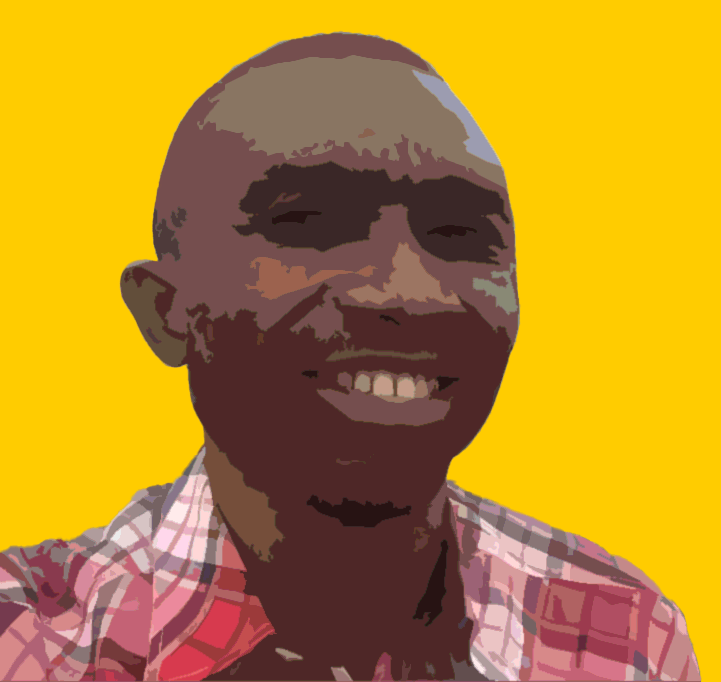Climate Specialist Dr. Sam Ogallah gives us a pan-African view on the food security conundrum and the consequences of climate change for the continent.
Samuel Ogallah, born in Nigeria, and achieving his PhD in Kenya, sees himself as a pan-African professional on climate change in relation to farming in Africa. The root of his motivation, he says, lies in an upbringing grounded in caring. Sam was born in an economically poor family in the rural north of Nigeria. His father was a nurse, his mother a housewife, primarily. Caring for people turned into caring for the planet through the turning point in Sam’s teen years: disaster management, as he calls it. His village got hit by serious flooding leading to erosion. It gradually led to the awareness that the overarching issue for his community is a man-made problem. Climate change is the result of our behaviour, and changing rain patterns should be mitigated via resilience. But his community was not ready for this, yet.
As a young student, Sam internalized the essence of sustainable development; the constant need to balance people, planet and profit. He decided to study further and completed his PhD in Kenya on the impact climate change has on smallholder farmers in the western part of Nigeria. The outcome was quite clear: we need to find a good interface between policy and practice.
In the spirit of contributing to ‘practice,’ Sam moved to Ghana a few years back and joined Solidaridad. Isaac Gyamfi, Solidaridad’s regional managing director, tasked him with building Solidaridad in Nigeria—a formidable task, knowing that half of the African poor live in Nigeria. With well over 200 million inhabitants, and with a growth rate on track to double its population before 2050, Nigeria is the African elephant. Solving problems on climate change, community resilience, and, above all, the food security conundrum of the nation, will be the litmus proof for the continent.
“Africa needs to feed itself, indeed,” Sam quotes his fellow countryman, Dr Akinwumi Adesina, President of the African Development Bank. The rest of our conversation was filled with the most persistent and most complex problem Africa faces: its impossibility of building a food system that allows substitution of the overwhelming growth of food imports.
Africa needs to feed itself
Sam Ogallah
Adesina was very clear when he assumed office in September 2015: “by 2025, Africa must be self-sufficient in food.” But in 2019, he had to admit that things are moving in the wrong direction. In 2015, food imports valued 35 $US billion, and with the current development, 2025 would lead to an imported value of 110 $US billion.
Sam is highly aware of this paradox. “Sixty percent of global arable land lies in Africa, so instead of importing food, Africa should contribute to feeding the world.” Sam sums up what is going wrong: changing policies, poor infrastructure, insufficient access to capital, climate change, and also inadequate agricultural techniques.
If we can make Nigeria work, we can make whole Africa work!
Sam Ogallah
“And what about the growing population?” Sam is clear. We cannot permit ourselves to be pessimists. Growing population, growing urbanization, also creates strong awareness in particular with youth to truly make the difference. Is there a possibility to push for healthy food for Lagos? “Yes, we can!”, Sam confirms. “We can set up even local fast-food chains as a constructive answer to the flooding of imported hyper-processed foods that is creating obesity in the slums of the growing urban cones here in Africa. Local farmer hubs, food landscapes really can help deliver healthy and sustainable diets to the nearby cities. I’m confident that with the same smallholders and their children, we can ultimately reduce our dependence on food imports.”
In Sam’s words, “if we can make Nigeria work, we can make the whole of Africa work!”

